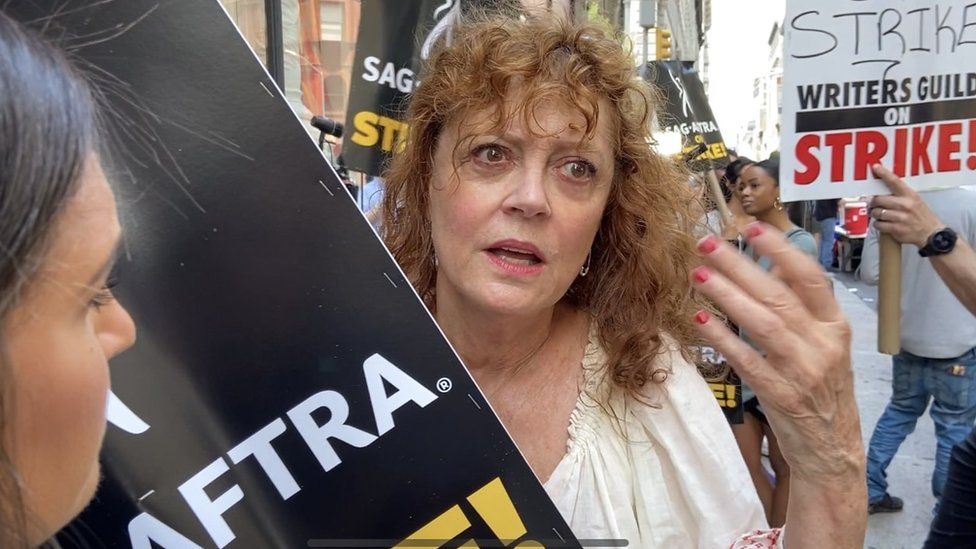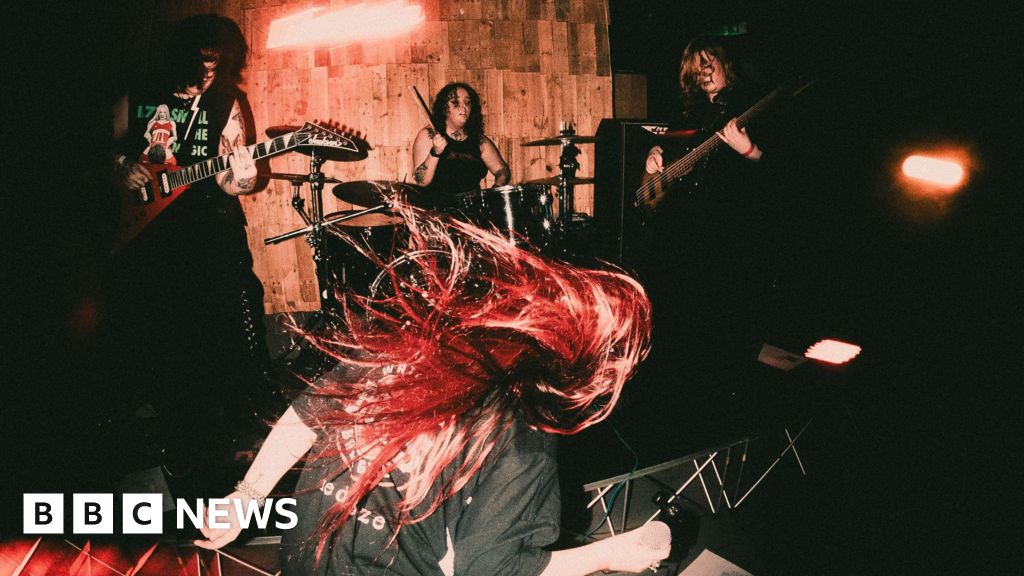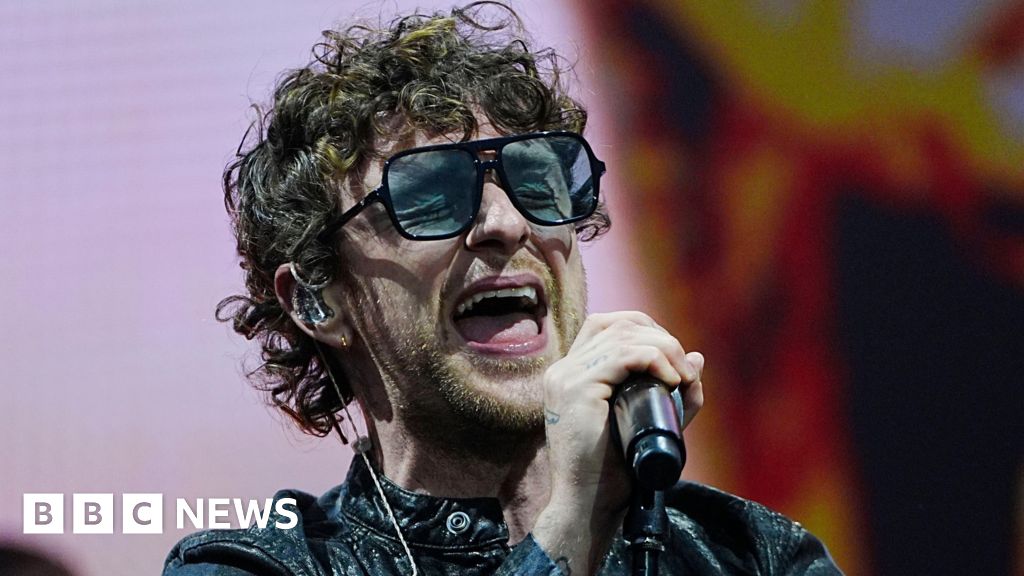ARTICLE AD BOX

Susan Sarandon said artificial intelligence (AI) "will affect everybody" in the industry
Jason Sudeikis, Susan Sarandon and thousands of actors have joined screenwriters on Hollywood picket lines in its biggest strike in over 60 years.
Writers walked off the job in May, frustrated over pay, working conditions and a lack of protections from advances in artificial intelligence (AI).
Major films in production including the Avatar and Gladiator sequels may be affected by the shutdown.
While the strike lasts, actors cannot appear in films or even promote movies.
Brian Cox, the lead actor on HBO's Succession, told the BBC the strike could last "until the end of the year".
"The whole streaming thing has shifted the paradigm," the Scottish star told BBC Newscast.
"They are trying to freeze us out and beat us into the ground, because there's a lot of money to be made in streaming and the desire is not to share it with the writers or the performers."
About 160,000 performers stopped work at midnight on Thursday, and had gathered outside the offices of major studios and streaming services in Los Angeles, New York and other cities by noon on Friday.
They have received support from celebrities in the movie and television business, including the stars of the upcoming Oppenheimer movie, who walked off the red carpet on Thursday night.
The Screen Actors Guild (SAG) wants streaming giants to agree to a fairer split of profits, better working conditions and guarantees that artificial intelligence will not be used to replace actors.
Productions likely to be affected include sequels to the Avatar, Deadpool and Gladiator franchises, as well as upcoming seasons of shows such as House of the Dragon, Family Guy and The Simpsons.
Red-carpet premieres, promotional interviews, and events including the Emmys and Comic-Con, have already been halted, rescheduled or scaled back.
Image source, Getty Images
Image caption,Jason Sudeikis and other top actors have been spotted on the picket line
The strike action is driven in part by an uncomfortable transition to the era of digital streaming, as well as by broader technological changes.
"There's definitely always been the feeling that if it isn't solved now, how do we ever solve it in the future?" Academy Award winner Susan Sarandon told the BBC from a picket line in New York.
"If you don't have the foresight to put something in place for the future, then you're screwed. It's clear that nothing is going to change from the top down, it's going to be up to us at the bottom."
Both writers and actors have complained that they make far less money than they used to make and that contracts have been undercut by inflation.
For actors, pay for individual roles has declined, forcing them to seek several more roles to make the same amount of money as they did a few years ago.
Writing contracts have become shorter and more perilous, with payment often not included for writers' work on revisions or new material.
"We are being victimised by a very greedy entity," Fran Drescher, the current SAG president, said Thursday. "I am shocked by the way the people that we have been in business with are treating us."
The failed negotiations with the Alliance of Motion Picture and Television Producers (AMTP) marks the first tandem strike in the industry since 1960.
A third union, the Directors Guild of America (DGA), is not participating in the strike after successfully negotiating a contract in June.
But the group has said it "strongly supports" those who are picketing.
With the prospect that the strike could roll on for months, cinemas could face problems, and viewers may be left with nothing new to watch bar reality TV and live sport.

 1 year ago
48
1 year ago
48








 English (US) ·
English (US) ·